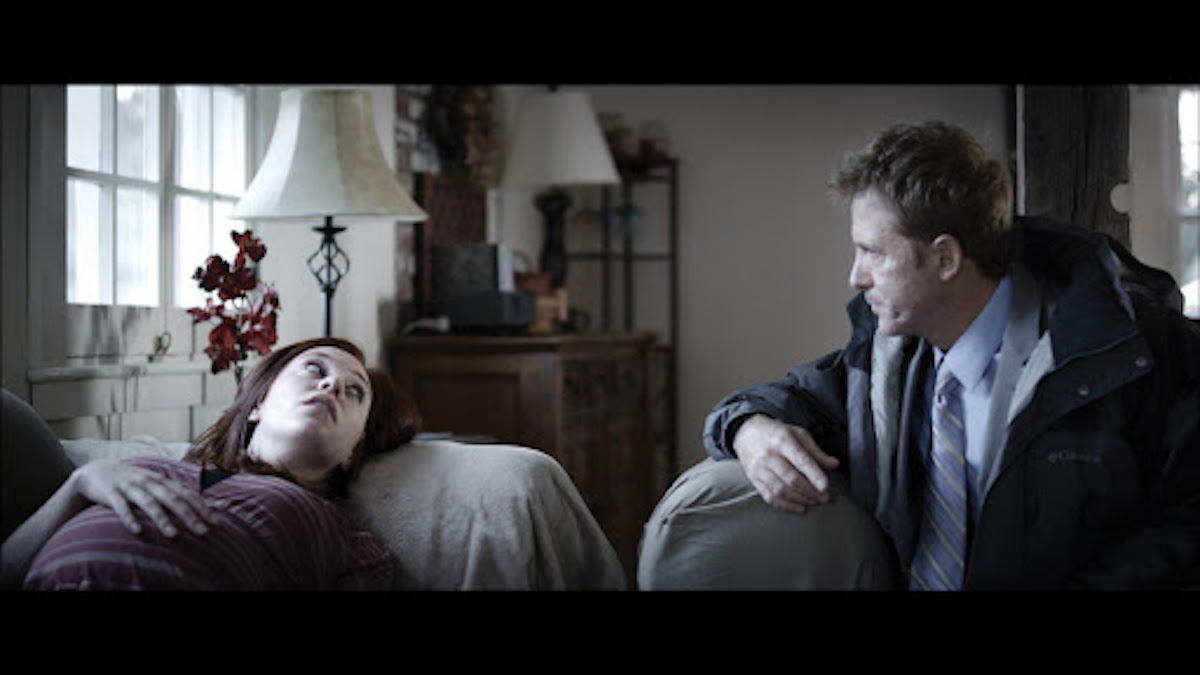By Chlotrudis Independent Film Society
Rating: 2.75
Director: Rob Fitz
Starring: Chris Devecchio | Gene Silvers | Rachel Kerbs | Rick Montgomery Jr

Country: united_states
Year: 2015
Running time: 97
IMDB: http://www.imdb.com/title/tt2404940/combined
Jason says: “Sometimes it’s hard to give a movie a fair shake, no matter how much it may deserve one. I saw a flat-out great movie with a similar idea just a couple weeks before seeing BLESSID so I wanted it to do more with its premise as soon as it showed its hand. It never managed that, and while I think that its relatively small ambitions do hurt it, knowing just what else could be done shouldn’t diminish what it does have going for it.
“That would be the performances of the leads. Neither Rachel Kerbs nor Rick Montgomery Jr. is charged with giving a showy, theatrical performance, but each is able to get across a great deal of what makes his or her character tick in gestures and body language. Get the pair in a room together, and they do a nice job of revealing themselves even if they are trying to ferret information out about one another. The older Montgomery is clearly more experienced than Kerbs, and also given material where his Jedediah Cross gets to come across as more than he appears to be, but she more than holds her own, even when not paired with cast mates not so skilled as Montgomery.
“That’s the case for a while at the start, when pregnant, depressed, and even suicidal Sarah Duncliffe (Kerbs) is prescribed bed rest for her physical and mental health. Her husband Edward (Gene Silvers) is the sort of man who thinks he’s doing her a favor that merits more gratitude by being married to her, and the ex-boyfriend she was having an affair with right around the time that the baby was conceived (Chris Devecchio) is hanging around a lot when Edward is not around. Cross has just moved into a long-empty house across the street, and initially just wants to be left alone, but the retiree is the only person Sarah has to talk to, and the only one watching when Sarah’s symptoms expand to include sleepwalking.
“There’s a fantasy element to the story as well, and to a very real extent, not only would the film not miss it if it were gone, but it’s often a distraction that hurts the film. At its center, BLESSID is about Sarah’s everyday struggles to get through a life that seems tremendously unfair, and what we learn about Jedediah makes him too much a creature of a different scale. He knows too much, so he can’t truly be frustrated or learn from her. Sure, you can say that connecting with Sarah helps him become re-engaged with humanity, but that’s a pretty horrible thing to reduce her struggles to. You can see what writer Robert Heske is trying to do in throwing together a woman who can’t see anything beyond her immediate troubles and a man who is disposed to see only the bigger picture – but he and director Rob Fitz never strike the right balance there.
“They also use this element set up something that is meant to feel like a big revelation toward the end that is actually fairly hollow – even if the film is meant to be a religious allegory, this reduces that meaning to that of an inspirational poster. That fits in with how the rest of the movie is something of a disjointed mess, from how the filmmakers seem to get a case of cabin fever that rivals Sarah’s to bits that seem to hammer at the plot too hard to an epilogue that is trying to be emotionally satisfying but is really kind of horrible. Fitz and Heske strive for significance but can’t get much beyond randomness, and seeing it in close proximity to SPRING just highlights how much that movie got the most out of a very similar
plot device.
“Of course that one had more resources at its disposal with which to execute its better-thought-out ideas. Still, when BLESSID works at its natural level – these two actors in a room, playing an older and more experienced man trying to help a troubled woman out – one wants to appreciate it for what it does, rather than what it can’t manage. 2.75 cats
“Seen 8 February 2015 in Somerville Theatre #2 (SF/40, digital)”
